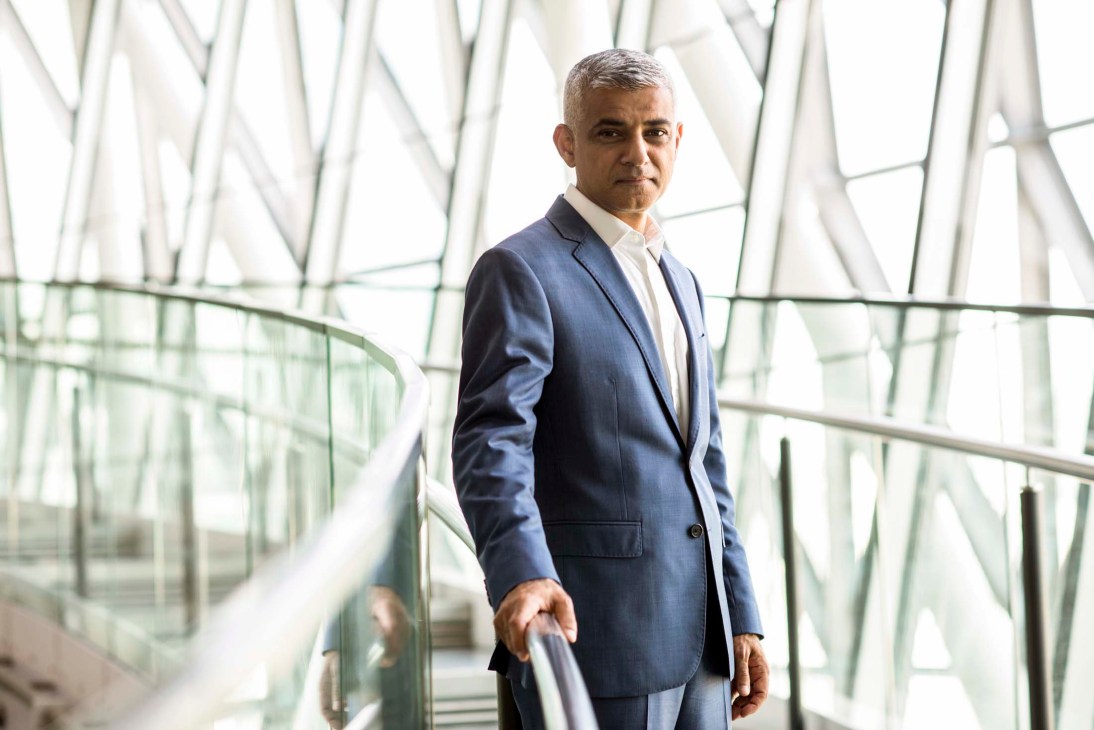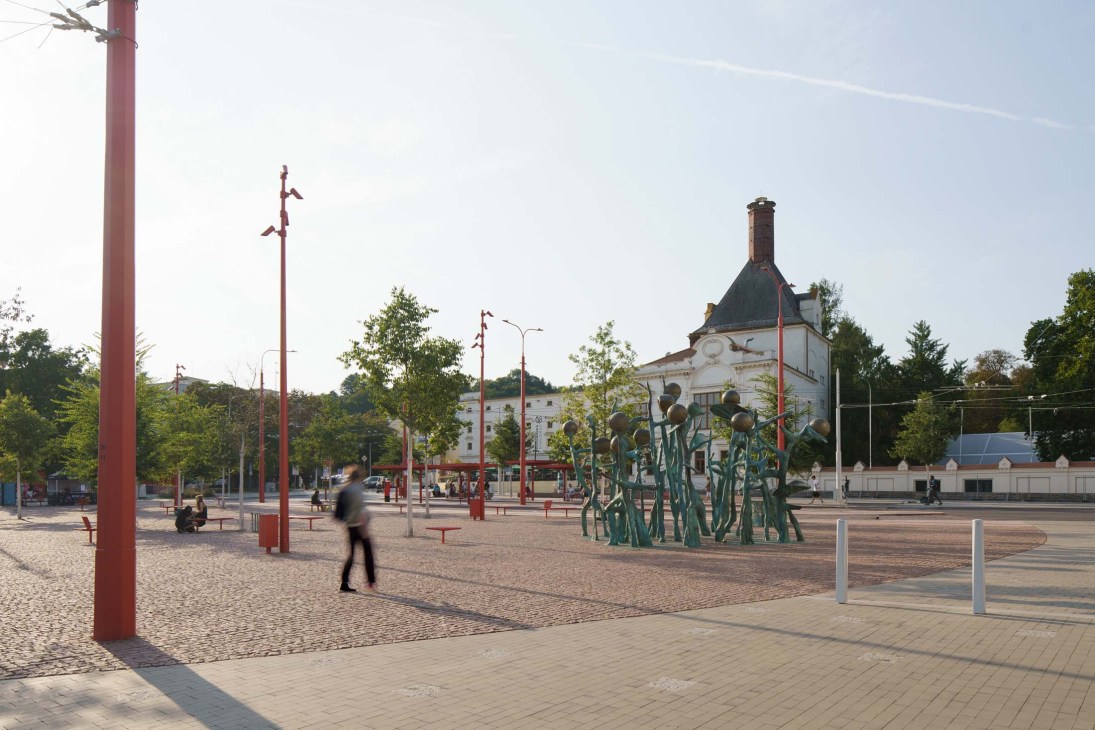The affairs agenda: Clean ports in Baltimore, Ukraine’s evolving rave scene and a Q&A with Sadiq Khan
Plus: A look back on the life of former Uruguayan president José Mujica’s life and his legacy of progressive values.
Environment: USA
Deep cleaning
Many US coastal cities have had their post-industrial harboursides repurposed to great effect. But while getting people next to the water has proved easy, getting them into it is more of a challenge. Industrial run-off has polluted waterways, preventing wild swimming. One city changing that is Baltimore; the Maryland port has plunged $1.6bn (€1.4bn) into upgrading its storm water and sewage infrastructure. And this summer, the second Harbor Splash will reprise 2024’s mass swim but with 50 more people than last year’s 150.
This is a significant achievement considering the legacy of Baltimore’s heavy industry, which left high levels of toxic pollutants in the water. “The perception was that the water in the harbour would melt the skin off your hand,” says Adam Lindquist, vice-president of the Waterfront Partnership, an organisation founded in 2010 by a group of business, non-profit and government leaders with the goal of making the harbour swimmable. The group has revived aquatic habitats with floating wetlands and oyster farming, providing natural filters for pollutants, while city government has repaired pipes and built storage tanks to prevent sewage entering the waterways.
The amount of sewage discharged into the harbour fell by 97 per cent between 2018 and 2022. The water is tested five days a week and people are advised against swimming outside of organised events due to boat traffic. “It’s early days but we think that a permanent swim spot is the future for Baltimore,” says Lindquist.
Politics: UK
Q&A

Sadiq Khan
Mayor of London
Sadiq Khan believes that his city is poised for a pivotal moment of opportunity and growth. He is urging the world to take note.
Why is this year important for London?
We’ve got a new national government whose number-one mission is growth. The stars have aligned in terms of certainty and stability, which is what stakeholders and contractors are looking for.
There’s a tension now between liveability and economic viability. Do you think that people are wary of rapid urbanism?
We need to grow sustainable, green, human-oriented cities. Our plan for London prioritises public transport, cycling, walkability, no car parks near stations, green roofs and walls, and rewilding urban spaces. We’ve brought back bats, bees and beavers to the city – Justin and Sigourney Beaver, to be precise – and we’ll clean up the Thames so that residents can swim safely.
What keeps you up at night?
Street crime remains a concern but we have made progress. We currently have the lowest rate of teenage homicides in 13 years. Burglary is also down and we’re tackling phone theft by working with police and phone companies to make second-hand phones worthless, just as car stereos once were. We’re also working with the private sector to create a better city.
Click here to read the full, extended interview.
The Foreign Desk
Andrew Mueller on: Earning respect
The funeral of former Uruguayan president José Mujica was a grand affair, certainly relative to the man that it commemorated: a flag-draped coffin on a horse-drawn gun carriage, mourning dignitaries, weeping crowds and a lying in state at the Legislative Palace in Montevideo. But Mujica’s final interring was more like what he would probably have wanted: he was buried under a sequoia tree on his modest farm, alongside his dog Manuela, who died in 2018.
Mujica’s schtick while serving as Uruguay’s head of state between 2010 and 2015 was that he was the world’s poorest president. On arriving in office at the age of 74, he declared a net worth of $1,800 (€1,600). The farm belonged to his wife. Other presidents, he once said, considered him a weirdo. But what if he wasn’t? Whatever lessons Mujica learned about the follies of avarice, he learned the hard way. As a young man, he committed himself to the dangerous and austere life of a guerilla in the ranks of Marxist insurgents, the Tupamaros. He was eventually arrested – being shot six times in the process – and spent more than a decade in prison. By the time material possessions were a possibility, he had little interest in them. He once harrumphed that his three and a half million fellow Uruguayans annually imported 27 million pairs of shoes: “Are we centipedes?” he demanded of his people.
But he seemed content and led an engaged, interesting and eventually admired life. “I dedicated myself to changing the world and didn’t change a damn thing but I was entertained,” he said. The lesson here applies as much to countries and cities as individuals: think a bit more about what we need, a bit less about what we want. In recent months, another president, who gets two Boeing 747s with the job and already has a Boeing 757 of his own, has grumpily defended his right to accept the gift of still another Boeing 747 from a royal. But does that president, or the country he governs, seem happy?
Andrew Mueller presents ‘The Foreign Desk’ on Monocle Radio
Urbanism: Czechia
Squaring up
Staré Brno, the oldest district of Czechia’s second city Brno, seems like the kind of place that should have a town square. Until recently, however, it did not. What it had was Mendel Square, an unprepossessing bus and tram station which, with bleak irony, bore the name of a botanist. But over the past few years, Mendel Square has been reimagined and reinvigorated. You can still catch a bus or a tram there but the idea is that you can now do much more, including complaining about the city authorities that funded the refurbishment.

“We’re not French – we don’t protest constantly,” says Brno-born Ondrej Chybik of Chybik + Kristof, which undertook the redesign along with Brno architecture firm Dílna and landscape architect Zdenek Sendler. “But in Central Europe we do consider squares as very important for civic society because all the revolutions and big changes within our country happened in those squares.” Chybik is of the generation of Czechs who grew up in a country transformed by people gathering in town squares; he recalls, as a four-year-old, sitting on his father’s shoulders among the crowds urging on the Velvet Revolution in 1989.
“There’s a place where you can put a stage, for instance, not just for protests but also cultural performances,” says Chybik. “There’s shade given by trees so you can stay a while, whether you’re protesting or enjoying an exhibition. The goal was to create a good square to accommodate as many functions as possible.”
Nightlife: Ukraine
Dancing in the face of danger
Before Russia’s invasion of Ukraine in 2022, Kyiv was fast becoming Eastern Europe’s hedonism hotspot. Wartime Ukraine’s nightlife, however, has far from disappeared and has even evolved to meet the moment head on.
The techno festivals and all-night raves might be gone but they’ve been replaced by a rich scene of day parties and evening gigs that frequently double as fundraisers for those fighting on the frontline.

Legendary Kyiv nightclub K41, designed by the architects behind Berlin’s Berghain and housed in a former brewery, has raised more than €700,000 to fund the purchase of everything from energy generators to bulletproof vests for the army. In the Black Sea resort city of Odesa, sometimes dubbed the Ibiza of the East, Ukrainians continue to party at the bars and clubs that line the seaside, even as drones hover overhead and missiles pummel the surrounding oblast.
In a time of blackouts, bombardments and daily uncertainty, the partygoers cutting shapes on the country’s dancefloors demonstrate how Ukrainians have refused to be flattened by a narrative of war and definitely still know how to have a good time.
For both civilians and soldiers on leave, these venues provide otherwise hard-to-come-by opportunities for conviviality and kicking back. Dancing the night or afternoon – away in a nation at war promises fleeting yet welcome moments of respite and an all-important morale boost.



